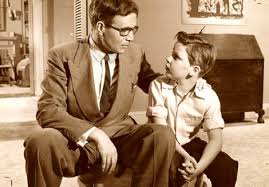 When to have the “Talk”? I don’t remember when my mom had the “talk” with me. You know, about sex. I do remember, however, when a classmate in 7th grade told me what it meant to “69.” He even drew me a little picture. Of course, naïve girl that I was, I still did not really understand. I was too embarrassed to ask for more details. I am a pretty conservative mom. Cursing is not allowed in my house and I try to ask those around my children to not curse in front of them. My husband and I are strict when it comes to what they watch on television too. PG is racy for my children. I want them to remain children as long as possible. And yet I know I will soon need to have a talk with my oldest. In working with adolescents, I have learned that eleven to fourteen year old kids know a lot more than I did and a lot more than parents would probably like them to know. Unfortunately, many are engaging in a lot of sexual activities. Engaging in the activities and understanding the activities are two different things. You have to decide who you want to educate your children on sex-television, classmates, video games, or you and her other parent. (I’m going to say you for the rest of the time but know I mean you and the other parent). By putting off the topic, we create a culture of secret and shame. When your children are small, you should be talking to them about bad touch/good touch (and its okay to use “real” terms like penis and vagina). As they age, encourage your child to ask questions. This may be hard for some parents but again who do you want them to learn it from. If you are not sure how to answer a question, tell them you will think about it and let them know. BUT then do get back to them. By the time your children are in fifth grade (and most likely before then), they have heard the word sex. Some other kid with an older sibling or unlimited access to cable knows a little too much. It is time for you to talk to them. There are some excellent books to help you. Go to the local library and check out sex instruction in the children’s section (it may seem weird but you type in “sex instruction” and click children’s catalog). READ a few books yourself before deciding which one to share with your children. Take into account your religious beliefs and make sure you are covering the basics. I suggest mentioning oral sex. Unfortunately, kids tell one another it isn’t really sex and therefore kids don’t understand its dangers. And yes some at this age are engaging in oral sex so it should at least be brought up. Remember to talk about how our bodies may be telling us to do it but we need to remember what is safe for us. As your child enters middle school, revisit the talk. At this time, it might be beneficial for you to do some research too. I write this in all seriousness. I am often surprised by the inaccurate information adults have regarding sex. For example, two condoms are NOT safer than one. Latex rubbing against latex is a bad idea. And yet, this is commonly thought to be a good idea! Again encourage your children to ask questions. As your kids age, they may feel comfortable talking to one parent over the other. Also, make sure you have the talk without other kids present. Remind your kids that they should not share too much about sex with other kids. Help them understand each parent shares with their kids at their own pace and may not appreciate your kid “educating” them. Once in high school, a lot of teens engage in sexual activity. And yet it is okay to tell your child that this is not want you want from them. Please know we can educate our children and encourage them to wait at the same time. I tell my clients that I understand a lot of teens have sex but that I hope that they would at least wait until they are in love and could be prepared to have a baby. I also tell them that if someone easily engages in sexual activity with them, then she engages in sexual activity with others the same way. Decide how much of your past you want to share with your children. DON’T overshare. You may want to share with your middle school or older child how old you were and if you would change anything. They don’t need details of your sexual escapades (and really it’s inappropriate). I’ll disclose that I plan on telling my children I would love if they could wait till they are married (because those are my beliefs). I will also fully educate them on safe practices for any type of sexual activity. I encourage you to really think about when to start talking with your kids. Once they hear it from someone else it’s too late. Stefanie Pisarkiewicz a Licensed Professional Counselor at Sandhill Counseling and Consultation. Stefanie is devoted to assisting clients use their own strengths to overcome life’s challenges. She is dedicated to helping youth realize their own potential.
0 Comments
 “Don’t do something permanently stupid because you are temporarily upset.” The unknown author of this quote realized something for all of us - we act out in ways that have unintended negative consequences because we are mad about something. The key is to learn what to do when we are mad that can help us calm down and then work to solve the problem. It is the job of parents, educators, and adults everywhere to first learn this themselves and then teach it to children. Picture your anger as a thermometer labeled 1 to 10. When it starts creeping around five, we all start thinking irrationally. Once we hit an eight, nine, or ten we are very unlikely to be able to solve a problem in a way that has positive consequences. If we realize this, we can take steps to calm back down to a four or lower. There are some basic steps to calm down: 1. Take a break 2. Change your negative thoughts to positive ones 3. Release the anger in a safe way 4. Solve the issue or move on Step One means removing yourself from whatever is contributing to your anger. For example, if someone is irritating you with his behavior, move away from that person. Step Two means changing the automatic negative thoughts we have when we start becoming upset and replacing them with positive ones. For example, “This is so stupid and unfair” might pop into your head. Replace it with “I can survive this” or “It’s not worth getting upset.” Step Three means finding a way to release any built-up tension from what upsets you. For example, going for a walk or visualizing a happy place. Step Four should only occur once you have dipped back down below five on your thermometer. It is then you can decide if you want to work out the problem or simply move on. These steps look easy on paper but can be very hard to enact. Practice, practice, practice! Even when you are just a little upset (a five or less on the thermometer), use these skills so that if you hit a nine it will be easier for you. Reference ideas from “What To Do When Your Temper Flares” by Dawn Huebner The Power of a couples Connection can electrify the happiness for your childrenAs an emotional focused therapist, one of the things I am certain about is the importance of having a loving relationship as a couple for us as well as our children. Children thrive in a family with loving relationships and parents who care for one another; demonstrating this allows children to blossom. What is becoming more certain for me is the ripple effect that our marriages and/or relationships have on our children’s well being. At times in my office I hear more couples consider staying together for the children’s sake. More and more I am convinced this is a bad idea. While I understand the complexities and the difficult emotions that may lead you to make this decision, as a marital counselor and family therapist I see the long term impact this can have on the lives of the children we care about. Do you really understand what you are saying when you consider this? The underlying message is it is acceptable to have a lack of attachments in relationships. The acceptance of this tells our children it is appropriate to have a relationship filled with mistrust, hurt, feelings of abandonment and insecurity. I don’t think this is the message we want to send to our children. The Impact Of Love And Attachment Theory What all the research on love and attachment has taught us is no couple no matter the issues need to have a lonely disconnected relationship. We now have a clear path to reaching a connection with our partners if we are willing to do the work. We must work toward a feeling of emotional safety and be vulnerable with our partners allowing them to see the “real you”,working toward a deeper understanding of each other. For most couples, this means your partner becomes tuned in on how important they are to you. You will clearly see the negative cycle creates created by these negative interactions in your relationship. You want to be able to structure your relationship as a safe place to express your needs and wants and feel beyond a shadow of doubt your partner truly is there for you. This is all possible although you may need help with finding a pathway to this kind of connection. Here are some of the reasons your children can be the best motivator to fix a relationship that is disconnected and painful: · Children are great imitators; this is also true with regards to relationships. Many adult children have relationships similar to their parents relationship. If arguing, name calling, put downs were elements in their parents relationship this was indicative of the kind of relationships they found themselves in. · Children living with parents with a great deal of disconnect felt insecure, and this insecurity was reflected in poor grades, bad behavior and social insecurity. As a couple you have a great deal of influence on the kind of relationships your children will have. Some other consequences of living with unhappy parents include: 1. Kids Trying To Be Perfect These children need to be perfect, which is an impossible task. Children will set unrealistic expectations for themselves. Being around conflict in the home can hamper children’s problem-solving skills and a accurate perception of the world. 2. Anxiety Issues Anxiety issues, such as sleep disturbances, panic attacks and feeling like the world is an unsafe place is a direct result of all this conflict. 3. Mood Problems “Silent treatment” has a big effect on childrens moods and feeling of being unimportant to their parents. These children living with the stressful conflicts also became caretakeers and took on a parental role with their parents, feeling they could “help” their parents get along.They stopped being kids and focused on appropriate developmental stages for children growing up. Working on your relationship is important for your happiness as well as your children’s. Don’t allow the unhealthy interactions become the norm for what your child considers a normal relationship. If you or your child feels like they are living in a battle zone, please get help. You are impacting your own happiness and your children’s future relationships as well. Denying this problem to yourself or your child will have you feeling like a hypocrite and nothing is worse than not being able to look yourself in the mirror. This façade will impact you emotionally, physically and spiritually; you do not have to live like this. Seek out the help of a qualified therapist trained in attachment theory who can give you the tools to have an emotionally close, connected relationship with your partner. You all deserve this.
|
JENNIFER EULBERG, MA, LPCWelcome Jennifer, our new blogger!
Jennifer is a counselor at Sandhill who specializes in depression, self-esteem, and grief & loss. Get to know Jennifer as she shares her perspectives on life, contemplates value themes, and offers gentle encouragement. THANK YOU to Stefanie Pisarkiewicz, LPC for her blog contributions from November 2014 - February 2019! Archives
May 2024
Categories |
|
CALL TO SCHEDULE AN APPOINTMENT
636-379-1779 |
|
Locations:
801 S. Woodlawn Avenue, Suite 15, O'Fallon, MO 63366 13303 Tesson Ferry Road, Suite 50, St. Louis, MO 63128 Email: [email protected] Phone: 636-379-1779 • Fax: 636-634-3496 |
